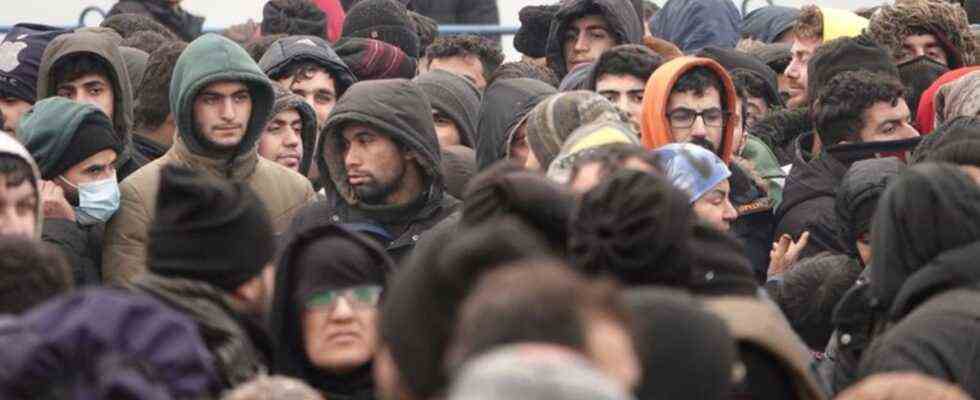Belarus
Germany has not agreed to accept migrants
Migrants wait in front of a warehouse near the border. Photo: Ulf Mauder / dpa
© dpa-infocom GmbH
According to statements from Minsk, rumors are spreading that Germany is negotiating the transfer of migrants to the EU – or that it wants to take them in itself. Berlin quickly makes it clear: That’s not true.
Germany has clearly rejected reports of an allegedly planned admission of 2,000 migrants from the Belarusian-Polish border.
During a visit to Warsaw, Federal Interior Minister Horst Seehofer (CSU) made it clear that the Federal Government had not reached an agreement with Belarus. “This report is wrong,” said Seehofer after a meeting with Poland’s Interior Minister Mariusz Kaminski. Hybrid threat situations are always used to disseminate false information to the public.
Lukashenko causes confusion
Previously, statements by a spokeswoman for the Belarusian ruler Alexander Lukashenko had caused confusion. Lukashenko has called for Chancellor Angela Merkel (CDU) to negotiate a “humanitarian corridor” for 2000 migrants to the EU, said Natalja Eismont. In return, the ruler, often criticized as the “last dictator in Europe”, offered during one of the two phone calls to the Chancellor to try to return 5,000 migrants to their home countries.
Shortly afterwards, however, Berlin government circles said: “Germany has not agreed to this. It is a European problem that Germany is not tackling alone. ” In the evening, the EU Commission said in response to the question of whether talks were being held at European level about the division of 2,000 migrants: “The EU Commission is not aware that there are any discussions of this kind.”
Reactions from Poland and Lithuania
The talks between Merkel and Lukashenko, which took place last Monday and Wednesday, continued to cause displeasure. “If the phone call was about how the migrants from Belarus are brought back to their home countries, then any initiative in this direction is in Poland’s interest,” said Poland’s Prime Minister Mateusz Morawiecki. But “in this crisis no decision should be made over our heads”.
Lithuania’s Foreign Minister Gabrielius Landsbergis described talks with Lukashenko as a “dangerous path”: “Dictators and authoritarian people are known for not obeying the law,” Landsbergis said according to the Lithuanian media. The German government defended the dialogue and declared that the aim was to improve the catastrophic situation for thousands of people on the ground.
Thousands of migrants have been waiting at the Belarusian-Polish border for around a week and a half and are hoping to continue their journey to the EU. Many of them come from Iraq, Syria or Afghanistan. Europe accuses Lukashenko of having pushed people there in an organized manner from crisis regions in order to apply pressure and to get revenge for sanctions. Since the middle of the week, the situation has eased somewhat directly at the border fence, because many people have left the forest and have been housed in an emergency shelter.

